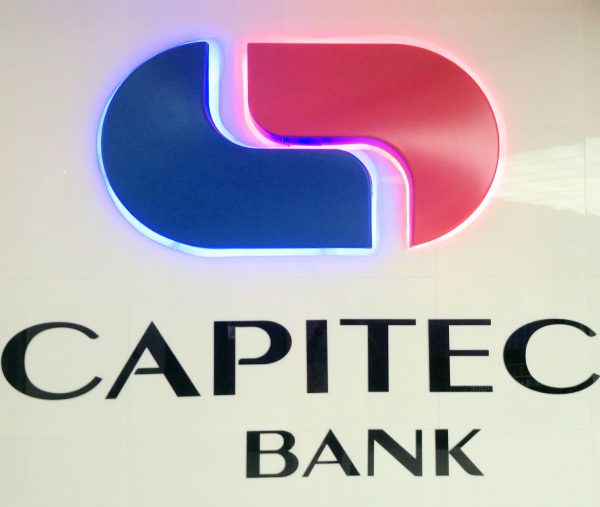Researchers dismiss Capitec’s rebuttals, claim consumer exploitation by the bank.

Viceroy Research continues to stand by its claims that Capitec is uninvestable and should be placed under curatorship, issuing a new report questioning the bank’s lending practices.
The report, A rolling loan gathers no loss, marks the third separate occasion in which the short-seller claims Capitec’s loan book is massively overstated and that its provisioning for bad debts is inadequate. It also addresses Capitec’s dismissal of Viceroy’s January 30 reporton the bank, A wolf in sheep’s clothing, and contains information submitted to the three-man research outfit by the bank’s clients and staff.
Read: A swing and a miss: Capitec on Viceroy’s latest report
Capitec has on two separate occasions issued Sens statements dismissing a number of Viceroy’s claims, including that the lender misrepresents the balance of its unpaid loans by rescheduling said loans through the issuance of new loans. In its detailed rebuttals, the bank pointed out flaws in Viceroy’s methodology, calculations and use of data. Viceroy, in its latest report, defends its research and conclusions.
The report also contains allegations of consumer exploitation by the bank.
Despite Capitec’s claims that it does not issue new loans to clients in arrears, Viceroy citing unnamed debt counsellors, banking clients and employees of the bank claims otherwise. According to the researchers, this practice allows Capitec to have a high “cure” rates on delinquencies relative to its peers.
Citing an internal communication dated February 8 from the bank’s head office to its branches, it alleges that Capitec has increased the maximum number of loans to which consumers are entitled to five, comprising four term loans and one credit facility. “Capitec should disclose to its investors and borrowers why it has amended this policy while recently stating they have adequate risk policies in place… If the maximum number of loans per customer has increased, we believe this will drastically increase the risk of Capitec’s loan book and corroborates our thesis that over-indebted customers finance existing loans by taking out fresh loans.”
The research team claims that Capitec’s staff are incentivised to sell the maximum amount of credit to clients irrespective of whether the client can make repayments. “Pay raises are dependent on credit issued to clients. Failure to extend the maximum amount a client qualifies for is classed as an undersell and reflected upon in performance reviews.”
It claims to have evidence of Capitec abusing the debit order system such that its own loan repayments take priority over those of other lenders when clients have insufficient funds in their accounts.
Viceroy also attempts to disprove media reports that Capitec chief executive Gerrie Fourie bought shares to the value of R1.5 million in the bank as a show of confidence in the bank, following Viceroy’s initial report. “We believe this is intentionally narrow-minded when viewed in the context of the net market sale of R49 million worth of Capitec shares by Fourie in 2017. Collectively, directors sold R406 million Capitec shares on market in 2017 alone.”
It also restates a connection between Capitec and Steinhoff, and attempts to draw parallels between Capitec and failed lender African Bank, both of which have been dismissed by the bank.
An analyst at a prominent asset manager said the anecdotal evidence contained in the report would likely create negative publicity for Capitec but does not prove that the bank is uninvestable, as claimed by Viceroy.
“Capitec remains well-capitalised, highly liquid and has conservatively provided for bad debts in our view. However, the share is still overvalued in our view, so we see further downside risk to the share price, but Capitec is unlikely to suffer the same fate as African Bank, which ended in curatorship. You could drive a bus between the bad debt provisioning policies of Capitec and African Bank, with Capitec being much more conservative,” the analyst told Moneyweb on condition of anonymity.
It remains unclear as to whether Viceroy has discussed its concerns with Capitec since publishing its initial report. At the time, Viceroy head, Fraser Perring, told Moneyweb@Midday that it did not engage with Capitec management as the information cited in the report was in the public domain. Fourie told Moneyweb last week that Viceroy did not respond to its invitations, issued via social media and in media interviews, to engage.
Although Fourie, at the time would not speculate on the purpose of the report, he said Capitec was likely an “easy target” given its valuation. The bank’s price-to-earnings (P/E) ratio – a valuation method used to compare current share prices to earnings per share, with a higher ratio pointing to higher earnings growth – is significantly higher than that of the country’s four other listed banks.
He said the timing of the Viceroy report into Steinhoff allowed it to gain some form of credibility. But said the research outfits’ claims still need to be interrogated when Steinhoff publishes its restated results. Steinhoff management are busy tending to more pressing matters to respond to the report, he said.
Viceroy published a report on Steinhoff in December 2017, a day after the retailer reported accounting irregularities and the resignation of Markus Jooste as chief executive. The retailer, whose share price has plummeted, has since restructured its executive team, faced a liquidity crunch and is subject to investigation in Germany and South Africa, the countries in which it is listed.
Viceroy, which has also questioned the South African Reserve Bank’s statement in support of Capitec, said it would share information gathered from third parties such as banking customers and staff with the central bank and National Credit Regulator.
Shares in Capitec closed 3.74% lower at R813.26.
Brought to you by Moneyweb
For more news your way, follow The Citizen on Facebook and Twitter.
Support Local Journalism
Add The Citizen as a Preferred Source on Google and follow us on Google News to see more of our trusted reporting in Google News and Top Stories.






